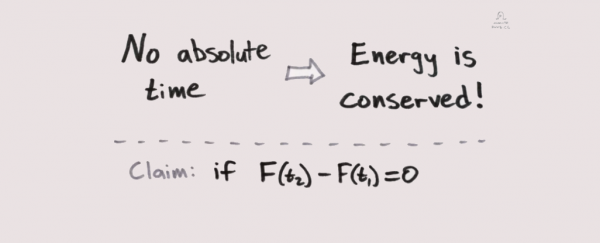One of the fundamental principles in modern physics is that there's no absolute time. And it's not about how travelling at light speed makes time go at different rates, it's about time being an arbitrary construct. "So any time is as good as any other to set your clock to zero," says Henry in the latest episode of MinutePhysics. And if there's no absolute time, that means there must be a conservation of energy, he adds.
So what do we even mean when we say "conserving energy"? That just means that there's a certain number in the equation used to figure this out, called the energy, which doesn't change as time passes. if you compare the energy at two different times in an equation, you'll see no difference, because it's been conserved.
The total energy of a system is the sum of its energy in motion - its kinetic energy - and its energy due to its position, which is its potential energy. So all we need to do is find the change in kinetic and potential energies over time, and add them up, says Henry.
Watch the latest episode of MinutePhysics to see Henry pull this off in just a couple of minutes. It's a rollercoaster ride of complicated physics and cool conclusions, and we love it.
Source: MinutePhysics
